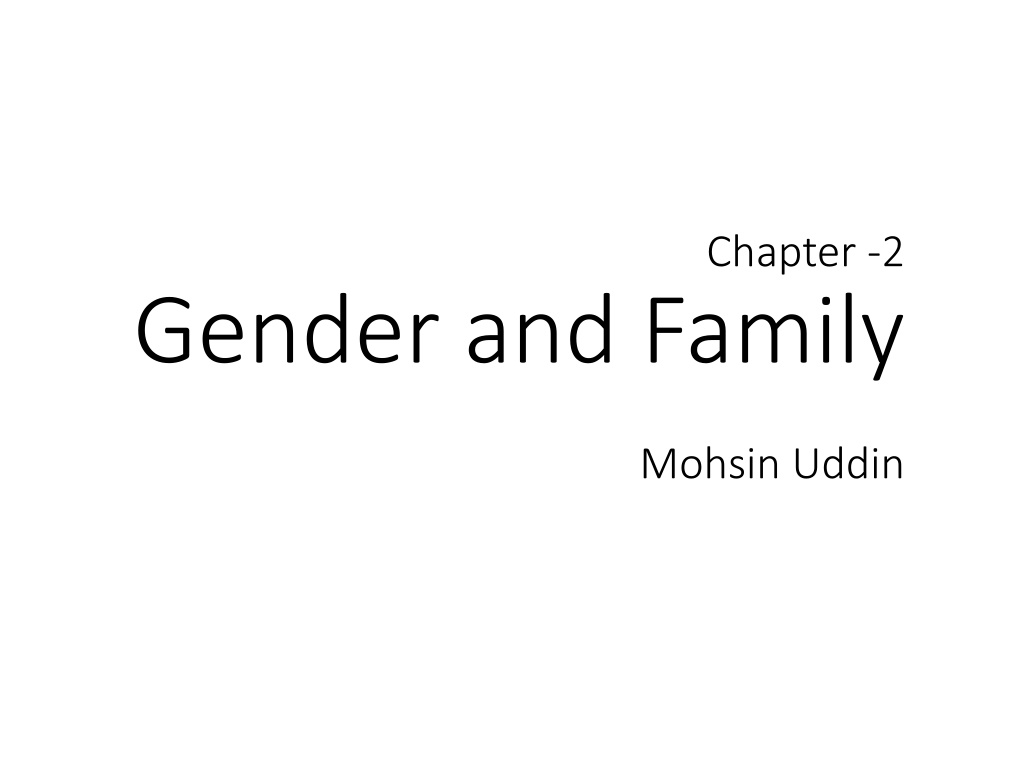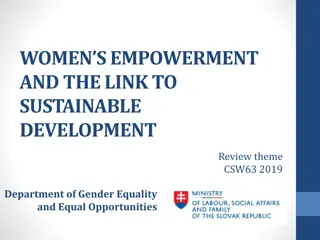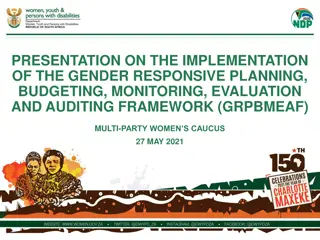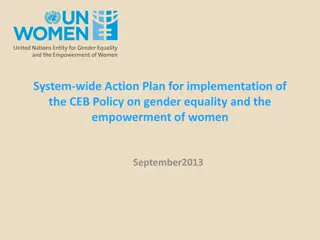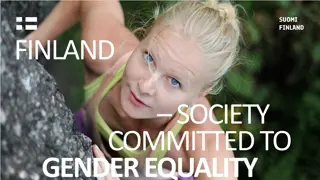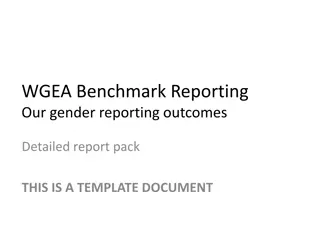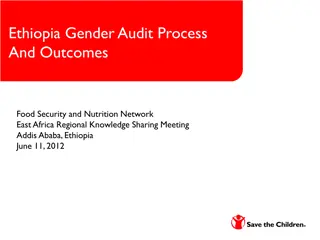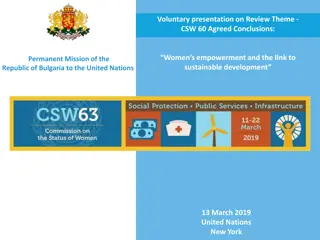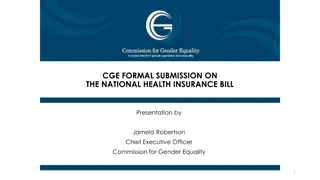Gender and Family Dynamics: Nurturing Equality and Empowerment
Exploring the intricate web of gender roles and power dynamics within the family and society, this educational material delves into crucial themes such as promoting girls' participation, challenging gender stereotypes, and understanding power structures. From addressing obstacles to girls' involvement in school activities to analyzing the impact of culture on power differentials between men and women, the content navigates through thought-provoking discussions and practical exercises on gender inclusivity.
Download Presentation

Please find below an Image/Link to download the presentation.
The content on the website is provided AS IS for your information and personal use only. It may not be sold, licensed, or shared on other websites without obtaining consent from the author. Download presentation by click this link. If you encounter any issues during the download, it is possible that the publisher has removed the file from their server.
E N D
Presentation Transcript
Chapter -2 Gender and Family Mohsin Uddin
Opening discussion There are some situations which come in the way of free participation of girls in the activities of the school. Can you redeem these situations as a Father/Brother in favor of the girls? How do you do that? (a)The school has arranged an trip for children. Some parents are not agreeing to send their daughters to the trip. (b) A girl is being bullied by her classmates. (c) Girls studying in a school are allowed only indoor games. (d)Some boys in the class are using foul language against girls
Home work Prepare a Chart paper(A2 size) to depict the status of women in our society by taking/ pasting pictures and headlines that appear in magazines. Newspapers and
Roles dimensions Hierarchy Deviation from ideal role Family Social Occupational
Power/Status and Gender Do men and women have different power bases in our society? How does culture impact the issue of power/status and gender?
There are some words given below. Convert them into appropriate gender inclusive words. Gender exclusive word Gender inclusive word Housewife Postman Sportsman Chairman Man made Cleaning lady Working men
Power Distance Large power distance: Inequalities among people expected. Dependence expected of those more powerful Obedience of children expected Familial decisions made via hierarchy Father Eldest son Small power distance: Inter-dependence between less/more powerful Family members treated equally Familial decisions made democratically
All In The Family Hierarchy Patriarchal Matriarchal Each with its own cultural responsibility Sincere roles Father/Mother Default roles Oldest child/Relative She wears the pants in the family
Family roles Expectations made clear by culture/religious values Social/Symbolic Father & Husband Leader Directs family per roles each holds Provider Wage earner Bill payer Strength Disciplinarian Mother & Wife Follower Take direction Nurturer Teach manners Taxi driver Counselor Listen to problems Chef Shopper
Sex and Gender Sex: Biological Gender: Social/Symbolic Expectations made clear by culture/religious values Boys: Tough Physical Powerful Confident ? Girls: Feminine Modest Obedient Caring ?
Sex and Gender Deviation = negative reactions Collectivist/Individualistic Boys: Tough Physical Girls: Feminine Modest
All In The Family : Gender Roles Cultural Men: Task functions/superior gender Dominant role/Income earner/Undisputed authority Oldest son assumes authority in absence of father Female: Social and cultural tasks/subservient gender Domestic role/Need protection Sacrifice self for family
Status Status is a position in society that carries with it certain distinct behaviors and abilities. High Status Age/Beauty Position Talent (celebrities) Low Status Age/Beauty Gender Introverted/Social nervousness Position Cultural hierarchy application Men = high status Women = low status
Gender Gender is part of culture has its own culture gender norms Gender as status: "tomboys
African American Matriarchal society Mother is both wage earner and nurturer Mother-Son relationship Reasons: Slavery Crime
Mexican/Mexican American Patriarchal Society Cultural ties strong Father dominant over home Mother takes care of home Children in hierarchy Oldest son Oldest daughter Social forces impact children/culture 3 generation rule for immigration
Family is one of the primary places where people are taught about gender, gender roles and gender socialization (Risman 1998) Gender is learned at a young age and begins within the family.
Family Family is is an an institution institution A group consisting of parents and theirchildren United by marriage, There are many family structures
Gender Gender Roles Roles Used to refer to feminine and masculine social expectations in a family based on a person s sex
-There are many stereotypes we are expected to follow -Society expects children to follow gender norms
What makes itwrong For a girl to play with a truck? Or a boy to play with dolls?
Family Structures 2 parent Single parent Extended Stepfamilies Non-biological families of choice
Nuclear Family? Stereotyped that is t h e norm in family structure Consists of 2 heterosexual parents legally married carrying out in separate masculine and feminine roles
Communicating in family Parent-child communication Children s communication Couple communication
Gender attribute Males are more intelligent than females Males are more self-confidence than females Certain types of social activities are not suitable for women. Males have greater tolerance to pain than females Some jobs are more suitable to females than to males. Household work is the duty of all women and girls
Biological attribute Biological attribute Women may tolerate children. Female voice is generally harsher than that of males. For a women, the looks and character are more important than anything else
Child Child Communication Communication Siblings influence gender Parents tend to give children gender specific toys t o y s Children gender Studies show that girls with older brother tend to have masculine identities Gender specifictoys
Gender RoleSocialization - Parents are the most influential to their children -Children are likely to model behaviors of who they respect
